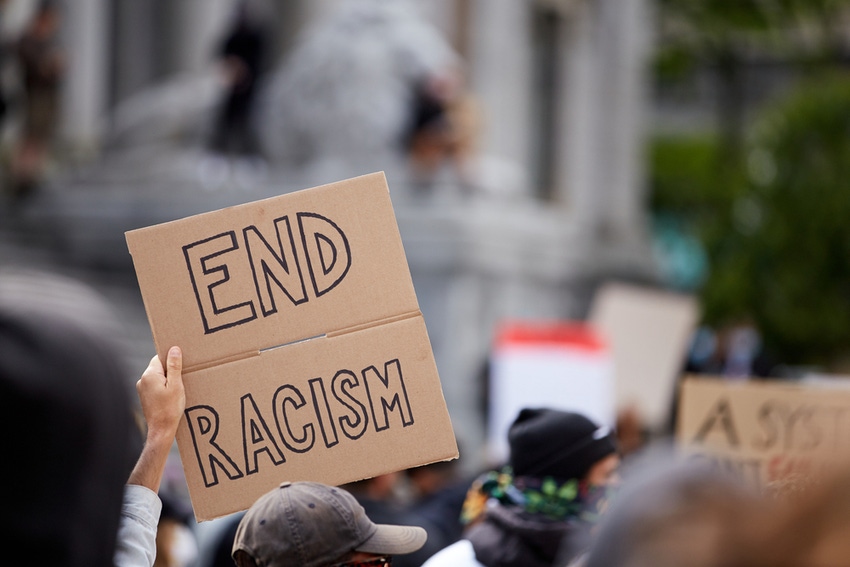While the author doesn't condone violent protests, she sees irony in the response to them.
October 14, 2020


Raquel Wiley
When I was first asked to write an article on diversity and inclusion, I put together a reasoned outline to talk about rational steps to address systemic change to rid businesses of racism now that the bandage concealing the wounds of racial injustice has been ripped off.
But then on Aug. 23, another African American, Jacob Blake, was tased and shot seven times by Wisconsin police officers responding to a domestic disturbance.
What’s happening to Black Americans is anything but reasonable. Blake was shot not once by accident, but seven times on purpose.
Then, on Sept. 23, no one was indicted in the killing of Breonna Taylor, a black American woman who was fatally shot by police, who were serving an erroneous “no-knock” search warrant for her Kentucky home.
What’s happening to Black Americans is anything but rational. The Taylor verdict was the ultimate insult on top of fatal injury.
The backlash, particularly in the Black community, has mirrored this irrationality with peaceful protests devolving into rioting and looting. The result is more loss of life and livelihood, more fear and fury, more distrust and death.
For the record, I don’t condone the violent protests, but I do see the irony. We can rebuild burned buildings and replace shattered windows, but we can’t resurrect murdered people. The outrage over destruction of property should be overshadowed by the destruction of black lives.
Channel Partners and Channel Futures are dedicated to fostering an atmosphere of diversity and inclusion in the channel and the technology community as a whole. Thus, we are featuring news articles, first-person accounts and strategies around topics of race, diversity and inclusion to spur discussion of these important subjects. Visit our webpage dedicated to the topic. |
Against this backdrop, how are we, as Black Americans, supposed to show up at our offices each day and act like everything is OK? It’s not OK.
How are we, as Black Americans, supposed to shoulder the responsibility of teaching our allies what racism looks like and how to fix it? We are not only traumatized by persistent discrimination; we are victimized once again in the retelling.
It’s time for our business leaders, the CEOs of tech giants, to show up at the office and NOT act like everything is OK. Because it’s not OK. It’s time that we hear what needs to be done about racism from our leaders, not people of color who are its victims.
Our industry leaders are the brightest minds and savviest strategists in the country. They’ve literally reimagined our world with silicon and software. They’ve earned respect from Wall Street to Main Street. Many also have platforms from which to influence – if not initiate – change.
A lot of our industry leaders remain silent because racism doesn’t impact their immediate families, but it does impact their business “families.” It’s in their best interests to effect an end to racial injustice, not only because it’s the right thing to do, it’s the right thing to do for their businesses. They know the success of their organizations is because of their people. If the people who create, sell and deliver their services aren’t OK, how will they continue to be successful?
It’s time that our industry leaders come together not as competitors but as corporate citizens to develop and share best practices for diversity and inclusion. It’s time they invite – and if needed, pressure – peers to participate. They must set the example and actively show others how it’s done.
It’s time that they jointly lobby Congress for change in ways they would for other causes that impact the bottom line. It’s time they make the case that it’s more costly for business and government to stand still than it is to change.
Racism isn’t standing still; against all odds, in 2020, it even seems to be growing. At this critical time, a public statement or charitable donation won’t cut it. We need our leaders to be on the front lines. It’s the human thing to do.
Raquel Wiley, a 25-year veteran of the IT and telecom industry and a channel marketing professional, is senior channel marketing manager for TPx, the national managed services provider. She is responsible for the strategic planning and management of the TPx channel partner program, which drives nearly half of the company’s $750 million revenue. Prior to joining TPx, Wiley was associate director of business marketing for AT&T, where she provided end-to-end marketing management for the West region small and medium business (SMB) sales organization. She serves as a member of the executive board of directors for the Alliance of Channel Women.
Read more about:
AgentsYou May Also Like
